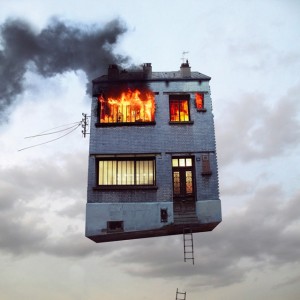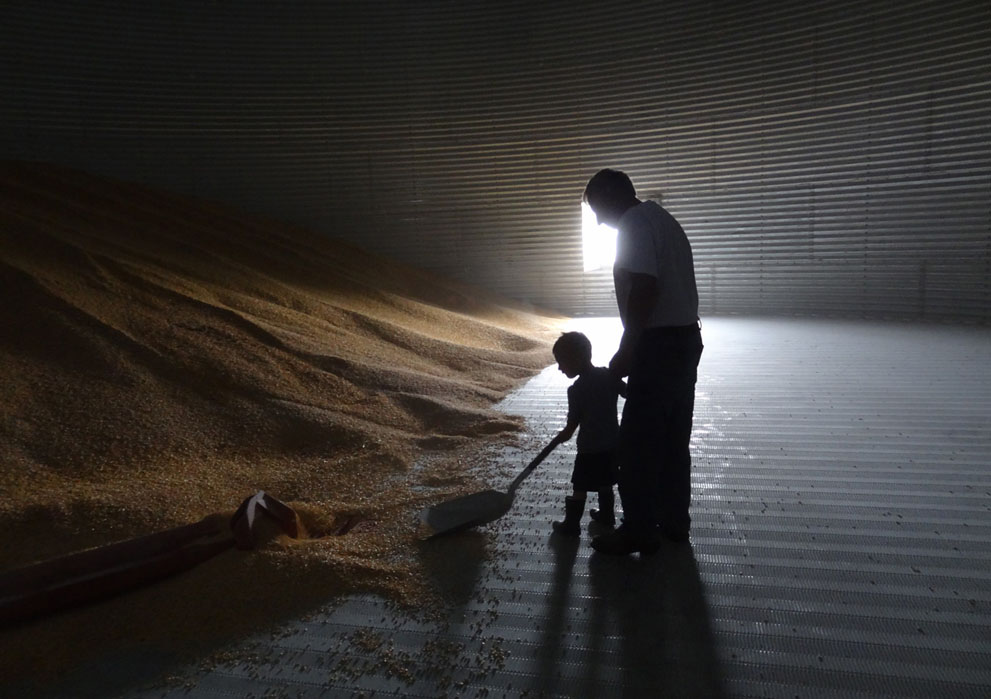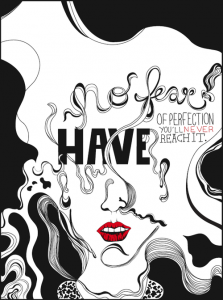Three Lessons: Humility, Collaboration, Perseverance.
March 8, 2013
All three – in that order – hold the key to becoming a world-class translator.
An interviewer, who was also a writer, once asked me how many words I’d translated before I published my first translated book for the American Institute of Physics. I imagined he expected an answer of perhaps ten thousand or so.
“About two million,” I replied.
Two million?! How is that possible?
“That’s a conservative figure, I think.”
I explained that I was young and had been dictating scientific translations from Russian into English for publication in scientific journals for almost a decade when I published my first book translation. I kept two technical typists busy full-time.
I might have added that I was also personally responsible for perhaps 1% of all US East Coast consumption of editorial red ink scrawled all over my translations.
It turned out that my translator-editor colleagues at the American Institute of Physics, Plenum Publishing, the Optical Society of America, the Congressional Research Service, the World Bank and the U.S. national labs, to name just a few, were even better than I was.
I thought of myself as a terrific translator at the time – don’t we all? I knew my subject-matter cold. I could write convincingly and clearly. I had completed tons of college coursework in translation at Georgetown and had published translations with nationally renowned Russian scholars at the Smithsonian. I’d been selected by scientific publishers from many hundreds of applicants, often the only translator chosen in a given selection round. The staff at the American Institute of Physics would always call me “Dr. Hendzel” when I called because many of the other translators on the translation program held PhDs in physics (I didn’t) and they were wary of offending somebody (I would politely correct them, but they would just as politely ignore me.)
So this editorial brutalization took some getting used to.
Twice a week I’d receive these fat packets stuffed full of hard-copy final corrections (later I’d receive red-lined electronic files). It was feedback on a massive scale, constantly, every single year, across dozens of sub-disciplines in physics, optics and engineering, and seemingly without end.
It occurred to me that this level of collaboration and correction was a lot like the scientific enterprise itself.
You learn three things from this kind of decades-long editorial mauling.
1. Humility.
2. Collaboration.
3. Perseverance.
Welcome to the Commercial Translation Market
Fast forward a few years to when I jumped feet first into the commercial translation market with my company ASET.
The first of many sobering realizations you come to in the early phases of building a premier boutique translation company is that you cannot possibly do all the work yourself, even if you do dictate.
After seeking out and examining the actual translation work produced by your commercial colleagues, you soon begin to realize that something is terribly wrong.
The commercial translation market appears to be radically different from the scientific publication market in some very crucial ways.
Don’t get me wrong. Some of the work is genuinely good. This warms your heart and brings a smile to your weary face. But much of the technical, legal and even financial translations produced by some of the most visible and recognizable names in the commercial translation industry – even those with graduate translation degrees and certifications a mile long – are dramatically and bizarrely uneven.

This comes as a bit of a shock. How is this possible?
The quality spectrum and relative distribution looked something like this:
Publishable – Good – Understandable – Technical Fiction – Embarrassing – WTF?
After you’ve carefully evaluated several hundred translation samples yourself and had thousands more assessed by your former scientific-translator colleagues you do trust, a pattern begins to emerge.
The translators whose work is most solid – technically accurate, well-researched and elegantly written – are those who have had excellent technical subject-matter training (whatever relevant field) and have been translating professionally for a minimum of ten years. A decade appeared to be a tipping point.
But that’s only a start. Far more crucial to real expertise was the way these translators worked for all those years.
The Essential Role of Collaboration
The best translators had dodged the bullet of working in total isolation. They had spent their careers working in a massively collaborative environment – either physical or virtual (sometimes both). These people had been revised. They’d been edited. They’d been re-written. Their texts had been scrutinized, disemboweled, blasted apart and re-assembled.
They’d been fine-tuned and polished and burnished and shined.
Their translations had been at risk their entire careers: At risk for acceptance or rejection or revision by their own colleagues who were right there in the trenches working with them.
They would project their translations on screens at translation conferences and stand by them. They would reflect and consult and discuss with the session attendees ways to improve them.
Often conference interpreters who also worked as translators – the ultimate experts in collaboration and active learning from each other – were, surprisingly enough, much more flexible and receptive to instruction and guidance than were (written-only) translators with subject-matter training working into their native language of English.
Angry Isolationists
This rejection did not go over well with some of the translators whose work I evaluated, heavily edited and then rejected for requiring far too much intervention on every level.
“Your changes are a matter of opinion,” some sniffed (perhaps, but their translations were describing a physical world that did not actually exist).
“Here are my responses to your changes,” they would say, writing out 20-page single-spaced responses defending terms they “found in the dictionary” but made no sense in the context, to the extent that their context made any sense at all.
“Translators are creative artists and do their best work alone, like authors do,” some translators argued, often angrily and vociferously. It was pointed out to me more than once that Shakespeare worked alone (seriously). They would dispute the most minor of points and reject all feedback on principle. Most of these objections followed Sayre’s Law: “In any dispute, the intensity of the feelings is inversely proportional to the value of the issue at stake.”
“I’ve Never Had a Complaint from a Client.”
Then there were the translators who would defend their translation quality based on the specious and puzzling notion that they’d “never had a complaint from a client.”
This could not be true, first, because I was a client, and my rejection of their work based on a careful assessment was about as “complaint-y” as it gets.
Second, veterinarians never have complaints from their patients, either – nor do coroners – for perhaps the same reason that some translators don’t. Many clients cannot accurately assess translation quality – certainly monolingual clients can’t – so they say nothing at all.
Silence should not be confused with a vote of confidence.
The Exorbitant Price of Arrogance
All humans have an enormous cognitive and emotional investment in self-image. And translators are running a business, which supports their very livelihood. So these are some very sensitive grounds on which we tread.
Unfortunately, these translators had made the regrettable decision somewhere in their careers to defend their ego and self-image over all else, even (and especially) the quality of their product. This is a doomed strategy in a competitive market. It’s also an unfortunate one given the opportunities we all have to learn from colleagues through collaboration.
And even a modicum of modesty – or a realization of the limits the complexity of the world place on us – would have unwound all that defensive energy and pointed them into a much more productive – and ultimately happier – direction.






>>these translators had made the regrettable decision somewhere in their careers to defend their ego and self-image over all else, even (and especially) the quality of their product.
Oh, well, art corrupts, and absolute art corrupts absolutely.
Nice post. Where’d you get the cool images?
Hi John, nice to see you here.
I collect images from all over the web for this site and use them when I feel they are appropriate for the content.
I believe that some images can create an emotional resonance when chosen properly. I have a whole new-found appreciation for photo editors in journalism!
One of my biggest challenges when starting this blog, believe it or not, was the font. I honestly hated all the free fonts on the Web and thought the dry, boring and flat fonts used on most blogs detracted from their message. It took me months to find the font I use on this site. I’m probably one of the few bloggers foolish enough to actually pay for a font, but the visual crafting of the words is important (this font is also used in some editions of The New York Times). I fell in love with how the font generator yields italic headers throughout the text.
You’ve hit the nail on the head once again, Kevin. Yes – ten years, subject-matter expertise, and lots of feedback – that’s a sound basis for a good translator.
Feedback is so valuable, but for those of us not working in-house, it’s relatively rare. I try to work with agencies and other freelancers who will edit my translations and show me their changes. That can be painful, but I find it one of the quickest and most relevant ways to learn. I’m lucky to have found some good translators and companies to collaborate with.
Yes, Jayne, thanks; I agree.
I fear that collaboration in the commercial translation market may be one of the more egregious silent casualties of the rush to increasingly faster turnaround times and what’s often referred to as operational “efficiencies.”
It’s not more “efficient” if it’s clumsy, twisted or wrong. The head of content management and localization for a leading technology company posted a strong defense of MT strictly on cost and efficiency grounds recently but I hope I was not the only observer to notice that his company was in the late stages of a horrific and terrifying death spiral, red ink everywhere, and desperate for rescue from the market. Are these people really the ones we should be taking advice from?
The boutique and specialty end of the market — which I believe is still relatively under-served and neglected, ironically enough — remains one venue where the devotion to accuracy, precision and elegance not only makes life more refreshing, but makes more money for everybody involved. This is the idea, right? 🙂
Excellent! I agree 100%. On the other hand: “… you cannot possibly do all the work yourself, even if you do dictate..” That was the reason why I refused to quit freelancing, to set up a translation company (even after 20 years). It was/is simply unconceivable to assume responsibility for the quality of translations not checked by me and by my standards. I’d be interested how you did manage to solve this dilema
Hi George, I think all great collaborative enterprises are built on a foundation of trust. I’m sure you would agree that some important activities absolutely require pooling expert talent. For example, none of the scientific journals I translated could ever have been published in English if the senior managing editor of the entire company required that he review every word in the 25 journals before publication every month.
Now this trust must be earned, of course, and when I was in the early phases of building ASET’s language operations and establishing its philosophy as described in this post, that entire process was one of “trust-building.”
What shocked me at the time — this was 20 years ago — was how different best practices in translation for scientific publishing was from the “best practices” followed (or ignored) in the commercial translation industry. Hammering stakes into the ground early on the subject of expertise and collaboration is why we were initially successful in taking market share at will from many of the larger translation companies in that day, many of which no longer exist.
Hello Kevin. I am just starting out as a technical translator and found your post extremely humbling for a start. It is good to see translators with long-lasting careers who remark the importance of recognizing mistakes, accepting suggestions and, basically, making the most of it all to improve as a translator.
I will keep it in mind as I keep on translating.
Thank you.
Thank you, Pablo. And welcome to the field! We need all the new talent we can get.
I think you will find that most dedicated and successful translators are very humble in service of the language. Translators who lose their humility are in terrible danger of losing all bearings.
How can one engage Einstein’s ideas in Shakespeare’s language and NOT be humble?
Yes, yes, yes.
“The commercial translation market appears to be radically different from the scientific publication market in some very crucial ways.” You are so right. I am a commercial translator and interpreter and I believe that many of the discussions we are having today in the translation and interpreting industry forget exactly this point. You are right in that many of us commercial linguists might never achieve the level of quality that is demanded to translate or interpret scientific or creative (artistic) material. This is an extremely important point because I would dare say that most working translators and interpreters work in the world of paid commercial products and services. Thus, certain intellectual discussions, though vital to the profession, should be clear of “sneering” down on commercial translators and interpreters, who are earning a living by producing the products the client wants (or is willing to pay). I am not advocating for poor quality. On the contrary. I will always advocate for the best quality possible under the circumstance. But I am concerned about some translators and interpreters coming from Academia or other places that are not the world in which most translators have to earn a living. On a different note, your post is so important I will incorporate those concepts into some of my training (with due credit to you, of course). Thanks for a fantastic post.
Claudia, thank you for your very thoughtful comment.
I hope I did not come across as advocating impossible or excessively idealistic standards imported from the academic community. Much of what I found objectionable in the translators’ work I rejected as described in my post was absolute factual nonsense. It was not a matter of toying around with shades of meaning. It was about getting the technical facts across to a reader of the English text who needed to make important decisions about the content.
I spent most of this period working in the field of nuclear weapons dismantlement and disposition and other activities under the U.S.-Russia (Nunn-Lugar) Cooperative Threat Reduction Program. Accuracy was not a luxury in this field, as I’m sure you would agree. 🙂
Great post, Kevin!
I used to help Russian physicists in Chernogolovka with translating their papers. Later on in Germany, I was lucky to find really good, old-school editors, when I started working for a specialty publishing house that produced industrial exhibition catalogues for the Russian market in the late 90s. Both special knowledge (and research) and “elegant writing” were key requirements. It was a very boutique genre on par with special technical writing, journalism, co-authoring, editing, adapting content to a specific event, location or audience. I found many direct clients after translating their articles and marketing materials first for exhibition journals, catalogues and later for their own publications.
Also, I was enormously lucky to collaborate with some great Russian colleague translators. It was a tremendous learning experience.
However, after several years of doing occasional jobs as revisor and editor for various translation agencies in Germany, I decided to quit accepting such assignments. There is an increasing tendency to use inexperienced, low-skilled, often semi-professional (above all low cost) translators and later drop the whole thing in the lap of an editor presumably for a final correction. Very often, the task to “revise” the translation, which has already been done, is incommensurate with the effort if the editor is expected (or feels it his/her duty) to deliver a flawless result. Many agencies justify such practices with the so called “four-eyes principle” (EN 15308).
Neither am I going to ever become a post-editor of machine translation which, in my opinion, is detrimental for the development of good writing skills (“elegant writing”). There is no synergy and no collaboration. Nothing can replace the experience of working together with experts in the field and with knowledgeable and talented colleagues.
Kevin, thanks for your article, it’s both humbling and revealing. I am a (write-only) translator not specialized in technical matters (I do mostly legal, financial and business-related texts) and work almost exclusively with direct clients and collaborating with trusted and trusting colleagues. However, from time to time technical texts do show up embedded in larger texts of a commercial nature, and I have tried to tackle them valiantly and always trying to validate my choices with somebody in the know. An anecdotic example: I was translating for a colleague a mining report from English into Spanish (my native language, Southern Cone variety) and came across the term “skats”. I researched till I was blue in the face and came up with unacceptable, illogical solutions (at least to my mind). I finally stumbled upon a jewel, the only reference I could find on line: a report by an Australian mining engineer on the subject of ball mills, in English, and there, oh joy of joys, was an explanation of what those darned skats were. Once I knew that, it was quite easy to find a way to express it in Spanish. Discussing it with my outsourcer-colleague, she was flabbergasted and asked me to please send her the article, because some other reportedly good, certified professionals who were working in the same project, had actually translated it as…faeces!
Thanks again for sharing, it was a real blessing to read this.
Great post, and a good reminder that humility is the key to all learning. As an environmental professional, my reports were subjected to intense peer review, often with conflicting comments from different reviewers. Learning to evaluate the comments and reconcile those conflicts made my reports leaner and, invariably, much more accurate, as I really had to consider what was being said and evaluate whether or not the input was appropriate to the context. If this kind of peer review is so successful when we are producing original reports, why should it be any different for translations?
It looks like there’s no other way to get to the shiny peaks of the premium markets unless through the gibberish we all start off with. The bitter path of experience is what it’s all about in the end.
Shakespeare is a rather poor example to cite if you are arguing for the idea of the solitary writer. Many of the Elizabethan playwrights collaborated with each other and revised each other’s plays for performance. In the case of Shakespeare, for example, it is known that Thomas Middleton revised parts of _Macbeth_ and _Measure for Measure_. Tom Stoppard, who wrote the screenplay for _Shakespeare in Love_, was also clearly aware of this. (There is one notable scene in the film where Shakespeare is taking pointers from Christopher Marlowe about how to write _Romeo and Juliet_).
I agree — I was pointing out that translators who refused to collaborate in their work would often make this obviously false claim (hence my parenthetical comment, “seriously.”) It’s widely known that Shakespeare’s plays were produced in a collaborative environment.
I do wish translators would value professional collaboration — on every text — more seriously. In my experience, which dates back to the 1980s, it’s the single most significant differentiating factor between those translators who succeed and those who struggle.
Hi Kevin,
Thanks for a fantastic article. I like your style of writing. Your article is an excellent example of fine writing skills.
I agree with Barbara. There is one aspect you avoided mentioning, and that not only in scientific translations but in scientific writing in general, the better institutions have a seal of a peer review. That normally includes at least three peers. Three independent opinions on your work. I have been working in the translating field for more than twenty years, but it is only in the last ten years that I went majorly commercial, and from my experience I notice that the better translation bureaus employ a three step process: first check the translation for obvious errors in source-target text, then submit it to a target editor, and then give it the final gloss over by a target content writer/stylist. I mean to say that while I agree with you that the major trend in the translation business is to make quick money, there are some companies who realize that in the long run you make even more money by making sure the final product is satisfactory in all aspects. Some percentage of my work is with companies who follow this three peer/step process, for the rest I just have to make sure I produce the absolutely best copy possible. There are some tricks for that: indeed dogged research, and a lot of mulling it over. My main problem sometimes is deciding how close I have to stay to the original with its peculiar syntactical constructions. If my editor or the end client is going to go along with a specific synonym I use; or with rearranged sentences. Russian authors, for instance, perhaps due to a “misplaced” sense of creative dignity, require staying close to the original syntax with their two meter long sentences. If I go ahead and make a more digestible text out of it for the English audience, even while retaining the original flowery detailed style – they call it an inaccurate translation or some such. Which is why I try to avoid private translation orders in the RU-EN pair, and prefer that it comes from an agency which will take the responsibility for the translated text. Perhaps, because I am coming from a freelancer position I don’t care how much my translation gets revised: the more the better I suppose on the premise of that three peer review policy, but if I think that I was right in using a certain (combination of) words, and the editor wrong, then I will defend my choice of course. From your position, on the other hand, as a company director, you should be happy to employ people whom you can trust as editors. I liked what John White said: “art corrupts, and absolute art corrupts absolutely.” You want to keep an eye on it?
I have to add that there are more projects that I proudly take sole responsibility for knowing that my copy is final. This does indeed feel much better and fulfilling in a creative way.
My hats off to you for the article!
Thank you for this interesting and illuminating article. It worries me that so many young people without any real work experience in any field think an MA in translation is all that is needed to be a fully fledged translator. Many years ago, when I was just staring out, I heard a seasoned translator state that in 20 years he had never made a mistake. I was really impressed and confessed later to a colleague that I did not think I could ever achieve that level of perfection. My colleague just laughed and said that either his translations had never been checked or he had never had any feedback. In house training is hard to come by these days, so collaboration is more important than ever. I am also a passionate believer in mentoring. As for being a translator – I tend to compare it to being an athlete (but hopefully minus early retirement), in that you may not win every race, but you should aim to be among the best, and work at it. But we are all different. You may not want to put money on a marathon runner competing in a decathlon, or a sprinter being good at throwing the javelin. However, translators who work into minor languages (or languages of limited diffusion) rarely have as many choices available to them as translators who work into any of the major languages. All the more reason to collaborate, I suppose.
Well explained, Kevin. Like I always tell my kids, “You learn from your mistakes, not from your perfection.” Without peer review, commercial translators, like myself, have a difficult time proactively learning how to improve their technical and writing skills. On the rare occassions when I have received negative feedback, I have been surprised at how “surprised” agencies are that I welcoming the feedback, even if it is negative. This is where the humility you refer to comes into play. Sure it is nice to receive praise, but as a commercial translator who translates texts from many different fields and industries, it is crucial that my colleagues and myself continue to pursue life-long learning by accepting and even welcoming critique of our work.
Humility–what a great reminder, and often inversely proportional to one’s experience. It’s what we don’t know that we don’t know that often gets us in the end. Kevin, I loved your perspective. My favorite line (from the comments): “How can one engage Einstein’s ideas in Shakespeare’s language and NOT be humble?”
Hi Kevin,
Delightful essay! You write so well.
Is this you being mentioned in another translation blog?
“His Hendzelness the First and Only, pope of the Premium Church of Translation, decried this and other heresies, such as calls for professional translators associations freed of the commercial guidance of their betters at the production of linguistic sausage, in his New Year’s sermon to an admiring crowd of underage Czech and Bulgarian colleagues. ” from
http://www.translationtribulations.com/search?updated-min=2015-01-01T00:00:00Z&updated-max=2016-01-01T00:00:00Z&max-results=2
Anyway, love reading your posts…and the Amazon review your wrote: http://www.amazon.com/review/RNILQLUK6E2JO
All the Best,
Chaz
Hi Chaz,
Thanks for your kind words. I was very gratified and honored that this particular article won the ProZ Community Choice Awards as “Best Online Article” for 2014. What makes it especially rewarding is that both the nominations and the final voting is all at the hands of translators themselves, so it’s nice to see that kind of positive feedback from my colleagues.
If you have the opportunity, do buy Chris Durban’s book that I review on Amazon at the link you provided.
With respect to the blog you cited, I don’t read it anymore — does anybody? It looks like it was designed in 1995. Plus, it’s poorly written, often hysterical, badly misinformed and, the greatest sin of all, unoriginal.
And in general, if I really wanted to be entertained by far better satirical parodies at the level of 14-year-old snots-who-can’t-get-laid, I’d watch reruns of “Beavis and Butthead.” 🙂